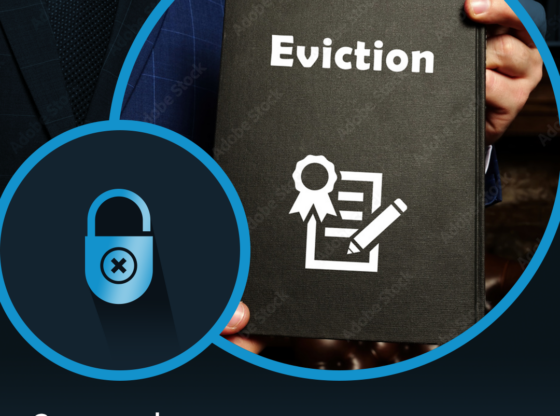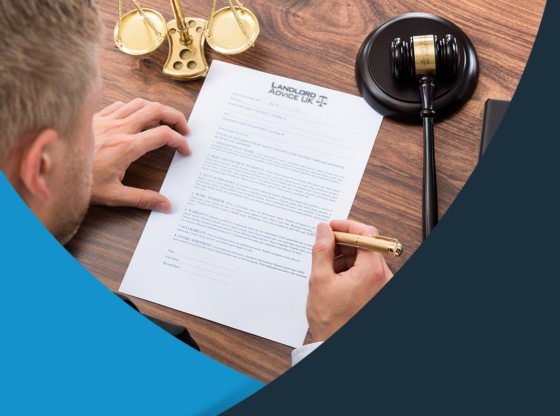Summary Judgement Application
The coronavirus pandemic kickstarted the rise of rent arrears and tenant evictions in 2020. This has followed by a cost of living crisis and wider economic downfall nationally.
Many landlords have issued possession proceedings to recover possession of their properties. Tenants often raise defences or counterclaims to possession proceedings which substantially delays the proceedings, increases legal costs and further loss of rent.
However, in some instances, landlords may be able to apply to the Court to determine part of the claim or the entire claim. This could, if successful, resolve the case substantially quicker and at less of a cost. Landlords will need to take various factors into account before making a summary judgement application. It is important to note that a summary judgement application cannot be made in relation to claim for possession (Civil Procedure Rule 24.3). This does not prevent the landlord making an application to the Court under CPR 3.4.
What is Summary Judgment?
Summary judgment is a court order – judgment – which brings litigation to an end early.
The legal proceedings are brought to an end when, at a hearing of a summary judgment application a court finds that the claim or the defence:
- has no real prospect of success, and
- there is no other compelling reason why the case should be allowed to proceed to trial.
The Courts say that summary judgment is:
“…designed to deal with cases that are not fit for trial at all” (Lord Woolf in Swain v Hillman (1999), the Court of Appeal).
The judgment avoids a close examination of all the evidence which might be produced at the usual end point of litigation, which is the trial.
The parties are saved significant time, expense, worry and the distraction of enduring the entire litigation process through to the trial. There is no point.
Applications brought at the right time end proceedings in weeks or a few months, rather than after many months or years.
Part 24 of the Civil Procedure Rules sets out the Courts rules on such applications.
Why Summary Judgment?
Summary judgment entered on the merits of a case.
It’s a case that can’t succeed in law. It’s clear to the court that the claim or defence advanced by the party is unsustainable.
That can be for a variety of reasons, including:
- it’s bad in law: it doesn’t disclose a cause of action
- what a party says in its evidence to support the claim is untenable, and that is not going to change throughout the proceedings.
Courts take the view that when a claim or defence is bad in law, the sooner that is ended, the better.
The claim sued on is disposed of fast:
- A successful claimant will be able to move on to enforcement far more quickly.
- A successful defendant dispenses with hassle of the following stages of legal proceedings: disclosure, preparation and exchange of evidence, further interim hearings and the trial.
Applications for Summary Judgment
Applicants may apply for summary judgment in respect of their entire case or only part of it.
Accordingly, separate causes of action which do not have a real prospect of success are able to be pared from the proceedings, and the good causes of action remain, and proceed to trial.
Applications for summary judgment are able to be made in all cases, in all courts, other than:
certain types of proceedings for possession of residential premises; and
admiralty claims in rem.
Summary judgment applications however have their place in litigation. Applications for early judgment are not appropriate, even in cases that may seem like it.
Some cases should be allowed to proceed to trial when issues exist which should be investigated at the trial.
Part 24 of the Civil Procedure Rules sets the test for summary judgment. It is there for appropriate cases to be disposed of summarily: when there’s no real prospect of success.
Analysis of an Application
Part of the process of assessing an application is what is said in the particulars of claim or defence, and casting it against what the evidence says.
All of the circumstances of the case should be taken into account, which includes:
relevant Statements of Case, which may include:
- originating Claim Form, whether separate Particulars of Claim are filed or not,
- Defence,
- Counterclaim, and/or
- Defences to Counterclaims.
- Statements of Case set out the alleged factual basis of the legal claim.
These are the documents which define the legal dispute between the parties.
No other document in the proceedings does so, other than further information and clarification.
These clarify the allegations of fact set out in a Statement of Case.
- the documentary evidence before the court at the time of the application
- the evidence likely to be produced by the parties and for the trial, if the proceedings were allowed to proceed
Timing of Applications
When a party wishes to apply for summary judgment:
- a claimant (or a counter-claimant) must wait until the defendant has filed an Acknowledgment of Service or Defence, unless the court has given permission to override that default rule
- a defendant may apply at any time.
It is usually sensible though for a defendant to file a defence, to show a court at the summary judgment hearing how the defendant would defend the case.
An application for summary judgment should be filed and served in time for the application to be heard at the first case management conference, but in any event without delay. 7 days after service of the Statement of Claim is a good marker.
The respondent to the application must be given at least 14 days’ notice of the hearing.
As with any other application made to a court:
the usual form of Application Notice (Form N244) should be used to initiate the Application
almost invariably, applications for summary judgment are supported by evidence, in a witness statement. It must be served with the Application Notice
Again, the respondent must be served with the application notice and any evidence in support 14 days in advance of the hearing date, whenever that might be fixed by the court.
This gives the respondent a fair opportunity to prepare their own evidence, and serve it.
The applicant is required to serve evidence in reply to the respondent’s evidence (if any) at least 3 days before the date fixed for hearing.
Applications are usually heard by Masters in the High Court and district judges in the County Court. Where part of the relief sought by the claimant – and the claimant is the applicant – involves an injunction, the hearing should be listed before a judge.
The Legal Test for Summary Judgment
To defeat an application for summary judgment it is only necessary to show that there is a “real” as opposed to a fanciful – think fictional or self-deceptive – prospect of success.
In Swain v Hillman (1999), it was said that the words “real prospect of success”:
“…do not need any amplification, they speak for themselves. The word “real” distinguishes fanciful prospects of success or […] they direct the court to the need to see whether there is a “realistic” as opposed to a “fanciful” prospect of success.”
So, a litigant, to successfully defend an application for summary judgment:
- must have a case which is better than merely arguable
- is not required to show that they will probably succeed at trial
- have a real prospect of success, even if it is improbable that their case will succeed
It’s not if the respondent will be successful, it whether the respondent has a hope or chance of succeeding, or if they doomed to fail.
To put it another way a legal claim or defence advanced in a court must be recognised in law. The facts alleged in the relevant statement of case must disclose a claim or defence, o evidence should exist to support the claim or defence; if not then it more likely than not that a summary judgement could be sought.
It has been put in these terms by Courts when parties have been sued:
- The respondent must show it has a realistic as opposed to a fanciful prospect of success (Swain v Hillman).
- There is nothing of substance in the claim or defence.
- The criterion for summary judgment is not one of probability: it is the absence of reality, on an objective standard.
- A “realistic” defence is one that carries some degree of conviction. This means the claim or defence that is more than merely arguable.
There must be an absence of a serious triable issue of fact or law.
It’s not for determining points of law or fact which requires extensive argument and citation of an extensive number of legal authorities.
If the issues in dispute require more thorough exploration than was realistically possible at the hearing, then summary judgment is not the likely outcome.
Overall, it is a summary procedure for summary assessment of cases.
Summary Judgment Hearings
Summary judgment hearings should be listed for hours, not days.
Summary Judgment is not a procedure to:
- obtain an immediate or accelerated trial
- conduct a mini-trial or condensed trial to decide liability.
A mini-trial would typically involve:
- an extended hearing
- resolution of conflicts of evidence in the contents of witness statements and documentary evidence
- the court hearing and deciding complex issues of fact or law
- end cases which raise important questions of public policy
Mini-Trials and Standard of Evidence
In summary judgment applications, the court is not attempting to fully and finally resolve the disputes. It’s what you might call a preliminary assessment.
At the the trial, courts assess the evidence it is presented: which is on the balance of probabilities on the evidence presented, and reach findings of fact and law.
Summary Judgment hearings are not like that.
The court is not attempting to fully and finally resolve the disputes between the parties on the merits of the case.
To put it another way, courts do not have a procedure to decide disputes on the balance of probabilities at the outset of legal proceedings. That requires a trial, which comes at the end of legal proceedings.
Summary judgment is different. It’s a summary, A short and concise procedure, at the beginning of legal proceedings.
In summary judgment applications, it’s more whether:
- the evidence taken at its highest could succeed
- the defence raises “an unwinnable case where a continuance of the proceedings is without any possible benefit to the respondent and would waste resources on both sides”
Where an application would involve prolonged argument it’s likely that the court is likely to resist the temptation to hear it. It does happen though. Those cases tend to be reversed (ie overturned) on appeal.
That’s because applications for summary judgment aren’t the place for it.
That’s not to say hearings of summary judgment applications are rough and ready. They’re not.
Courts are likely to:
- Consider the inherent probabilities of statements made by witness against the documents and other evidence available at the hearing
- Engage in an assessment of contradictions between what the respondent says, and what documents before the court say.
- A court is not likely to take everything said by a respondent at face value. Especially if it doesn’t tally with the evidence.
- The contents of documents are likely to be given greater weight than what is alleged in a Statement of Case: particularly when the documents do not support what the respondent says in their witness statements.
- Evaluate the case to ascertain whether the factual context and legal issues are straightforward, and cast those probabilities against the evidence.
- It may be that the case is incapable of being challenged or defended.
- Reject allegations disputed fact where oral evidence would serve no purpose at the trial . That is, if the statements of case doesn’t deal with the legal issues or is irrelevant to deciding the legal issues.
- Assess whether a witness should be permitted to give oral evidence to explain apparently damaging documents in context, and explain the circumstances in which they were made.
- Think twice before bringing a case to an end where reasonable grounds exist for believing that a fuller investigation into the facts of the case would add to or alter the perception of the evidence available, to a trial judge.
Also, it may be inappropriate to award summary judgment in a case where the facts of the case and multiple causes of action are closely related.
Testing of Evidence
Courts are likely to be all the more wary where the honesty of one of the parties has been called in to question. Cases of civil fraud usually call for cross-examination of witnesses: which means a trial is required to properly – and fairly – assess witnesses and the documentary evidence.
Whether or not material is likely to exist which would more fully inform a court at trial is a material factor, because it contributes to whether (or not) there is a real, as opposed to a fanciful prospect of success.
Preparation for Summary Judgment Hearing
Courts apply the Rule of Law. Courts hear sustainable legal claims based in law and defences which are also based in – or recognised by – law.
The legal test is negative in the sense that it focuses on what is not sustainable on a legal and objective standard.
Court retain an overall discretion in applications for summary judgment: the law caters for cases which are not suitable for summary judgment, such as those which are complex or where evidence is likely to come out at a later date to be examined at the trial.
If you require assistance with your matter or want to discuss whether you could seek a summary judgement, please contact our experts on 002 3903 2000 or by e-mail on [email protected].










